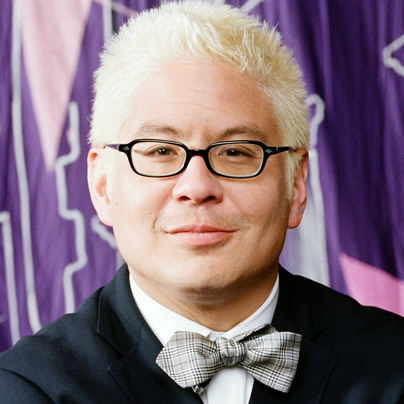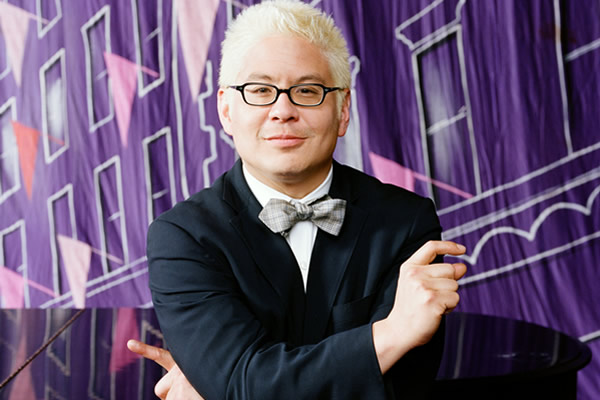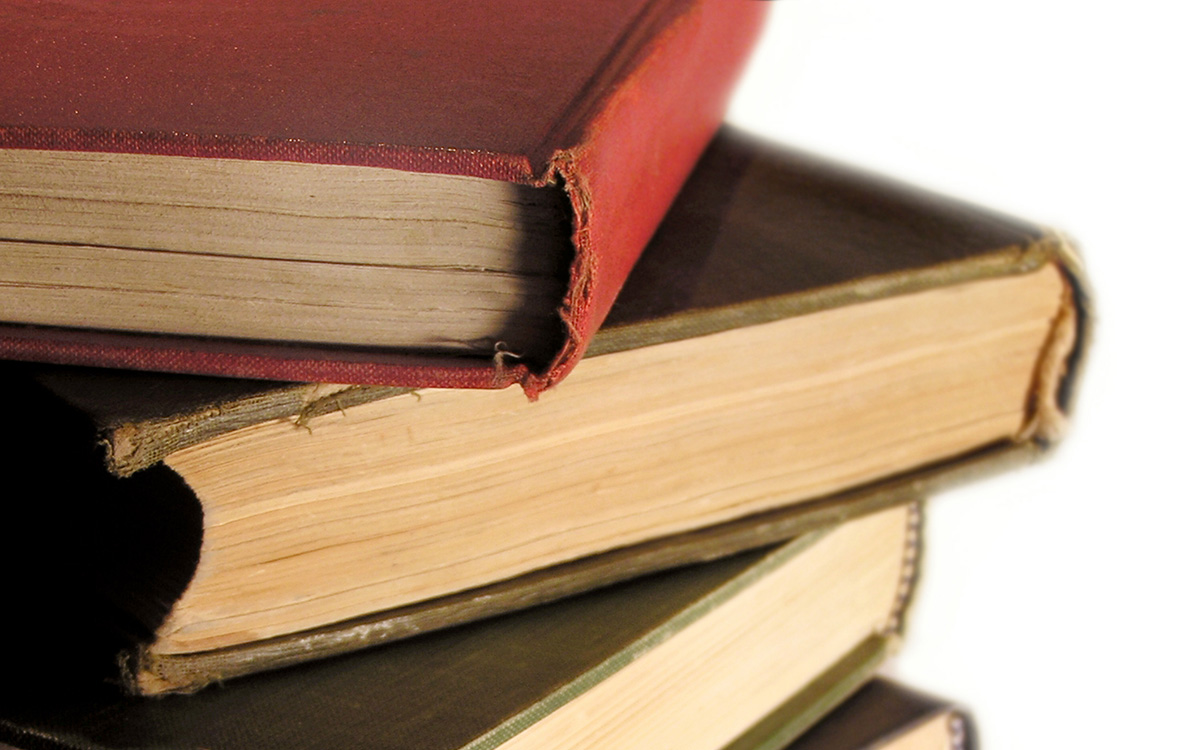Arts & Entertainment
Sonic cocktails
Pink Martini’s Lauderdale on life, music and his V Day show at the Kennedy Center


Thomas Lauderdale, founder and frontman for Pink Martini. (Photo by Autumn de Wilde)
Pink Martini
Thursday
8 p.m.
Kennedy Center Concert Hall
$30-$90
wpas.org
202-785-9727
Thomas Lauderdale, the gay founder and band director of Pink Martini, called just a few minutes after waking up one day last week from his home in Portland, where he lives in a house he says is haunted with his partner of eight years, Philip Iosca. Pink Martini returns to Washington next week for a Washington Performing Arts Society concert on Valentine’s Day at the Kennedy Center. Comments edited for length — Lauderdale is a big talker.
BLADE: Is it a good morning in Portland?
LAUDERDALE: Yes, I love it here. It’s sort of like the Pittsburgh of the west. And the guys are really cute here, more so than the girls. It seems like most cities either have cuter guys or cuter girls. Here it’s the guys.
BLADE: Pink Martini has performed with so many orchestras all over the world, yet your music is not straight-up classical at all. Are the players ever snobby about it or do they mostly just have fun with it?
LAUDERDALE: They’re really game for it. I think classical musicians who were snobby are becoming less so all the time. They have to be. Nobody’s going to hear them. Their audiences are dwindling all across America. … Most young people are watching “American Idol.” It’s just not a viable option to just play the traditional repertoire. … Orchestras all over the country are in the quandary of how to generate new audiences.
BLADE: So are the lines blurring between pop/rock and classical?
LAUDERDALE: Yes, they have to. … That was one of the reasons behind creating the band — I wanted to appeal to people outside their traditional dividing lines so it would connect with people who are really conservative, really liberal and everybody in between. This international styl with kind of an old fashioned pop feel, I felt it would be inspiriting and fun and a place where people could find commonality. And that’s kind of come true.
BLADE: Whatever happened to the Del Rubio Triplets (the group Pink Martini was formed to open for in 1994)? Surely they must be dead by now?
LAUDERDALE: Yes, sadly they are all dead. I think Millie, the oldest one by a few minutes, died about two summers ago. They were complicated — very Catholic, very anti-immigrant, yet so pro-gay and really Southern California. It was dizzying.
BLADE: Your stuff has this pre-classic rock era feel. Do you watch “Mad Men”?
LAUDERDALE: No. I don’t have a TV.
BLADE: You must feel some sense of identity with the pre-Vietnam era. Your music isn’t just that, but there’s kind of a Steve and Eydie vibe to some of it, right?
LAUDERDALE: Yeah, that sort of era between World War II and up to about 1964. It seems one of the goals of that era was building things that were beautiful and were built to last. You find refrigerators built in the ‘50s that are still working just fine. Later we saw, I think, a darker side to capitalism but I think it would have been nice if some of those trappings of that era had survived into the political liberation post-’64.
BLADE: On paper, it sounds so unlikely that a band like Pink Martini would make it. Do you feel you stumbled on something missing in the zeitgeist that there was a hunger for or does the cream always manage to rise with the truly talented in the end?
LAUDERDALE: Well, I don’t know. I think working on that first album, we were just trying to figure out a way to make it fun and accessible and not negative. It definitely helped that we were all from Oregon. This band would not have made it if we’d all lived in New York or San Francisco where everything is just so expensive and you have to be in five bands or something crazy just to make the rent. Here you can get by on very little, so you actually have time to think and just be.
BLADE: How many are in the band currently?
LAUDERDALE? Anywhere from eight to 14 depending. We’ll probably have about 10 in D.C. And we’ll maybe hire a string section.
BLADE: Can you tell us anything about the show?
LAUDERDALE: I haven’t thought that far ahead. It’s for Valentine’s Day so we might do something kind of romantic-ish.
BLADE: How gay is the band besides you?
LAUDERDALE: Well Ari Shapiro has been doing stuff with us and we’re both totally gay. And Timothy (Nishimoto). There are a few others who might be gay for pay. I think they could be tricked into it.
BLADE: You grew up in church. Were you aware at all of a mid-century trend where even the Lawrence Welk-era stuff was starting to be reflected in the gospel music of the time? There’d be stuff in the hymnals that even had waltz accompaniments.
LAUDERDALE: Well we had the red hymnal and the blue songbook where you had the newer stuff. That’s where you found the artsier, ‘70s stuff. You know, my Dad was the first openly gay minister in the Brethren church. He tends to like these cheesy inclusive modern hymns which I think are just cheesy and awful. When I go back to visit, I’m always pulling out these gloom and doom hymns — you know, we’re all going to burn — from, like, the 1880s. The melodies are just better, more beautiful. And I always win because I’m at the piano.
Out & About
The Rare Book Fair is coming to D.C.
Over 35 antiquarian booksellers from across the country to attend

The Capital Rare Book Fair will bring more than 35 antiquarian booksellers from across the country to D.C. from Friday, May 3 to Sunday, May 5 at the historic University Club at 1135 16th St., N.W.
This year, the fair will take over two floors in the illustrious mansion on 16th Street and showcase thousands of beautiful, notable, and rare books, maps, and historic documents from around the globe. Exceptional examples that will be offered include leaf 27 of a 40-leaf xylographic Biblia pauperum, a picture Bible from 1465 for $85,000 from Bruce McKittrick Rare Books, among many other intriguing selections.
Tickets are $50 and more information is available on the event’s website.

Friday, April 19
Center Aging Friday Tea Time will be at 2 p.m. on Zoom. This is a social hour for older LGBTQ adults. Guests are encouraged to bring a beverage of choice. For more information, email [email protected].
Go Gay DC will host “Drag Pageant” at 8 p.m. at Freddie’s Beach Bar and Restaurant. Net proceeds from this event will benefit EQUALITY NoVa, the local nonprofit organization dedicated to advancing equality in Northern Virginia. Attendance is free and more details are available on Eventbrite.
Saturday, April 20
LGBTQ People of Color Support Group will be at 1 p.m. on Zoom. This peer support group is an outlet for LGBTQ People of Color to come together and talk about anything affecting them in a space that strives to be safe and judgment free. For more details, visit thedccenter.org/poc or facebook.com/centerpoc.
Go Gay DC will host “LGBTQ+ Brunch” at 11 a.m. at Freddie’s Beach Bar & Restaurant. This fun weekly event brings the DMV area LGBTQ community, including allies, together for delicious food and conversation. Attendance is free and more details are available on Eventbrite.
Sunday, April 21
Go Gay DC will host “LGBTQ+ Dinner” at 7 p.m. at Federico Ristorante Italiano. Attendance is free and more details are available on Eventbrite.
AfroCode DC will be at 4 p.m. at Decades DC. This event will be an experience of non-stop music, dancing, and good vibes and a crossover of genres and a fusion of cultures. Tickets cost $40 and can be purchased on Eventbrite.
Monday, April 22
Center Aging: Monday Coffee & Conversation will be at 10 a.m. on Zoom. This is a social hour for older LGBTQ adults. Guests are encouraged to bring a beverage of their choice. For more details, email [email protected].
Tuesday, April 23
Pride on the Patio Events will host “LGBTQ Social Mixer” at 5:30 p.m. at Showroom. Dress is casual, fancy, or comfortable. Guests are encouraged to bring their most authentic self to chat, laugh, and get a little crazy. Admission is free and more details are on Eventbrite.
Genderqueer DC will be at 7 p.m. on Zoom. This is a support group for people who identify outside of the gender binary. Whether you’re bigender, agender, genderfluid, or just know that you’re not 100% cis. For more details, visit genderqueerdc.org or Facebook.
Wednesday, April 24
Job Club will be at 6 p.m. on Zoom. This is a weekly job support program to help job entrants and seekers, including the long-term unemployed, improve self-confidence, motivation, resilience and productivity for effective job searches and networking — allowing participants to move away from being merely “applicants” toward being “candidates.” For more information, email [email protected] or visit [email protected].
Asexual and Aromantic Group will be at 7 p.m. on Zoom. This is a space where people who are questioning this aspect of their identity or those who identify as asexual and/or aromantic can come together, share stories and experiences, and discuss various topics. For more details, email [email protected].
Thursday, April 25
The DC Center’s Fresh Produce Program will be held all day at the DC Center for the LGBT Community. People will be informed on Wednesday at 5:00 pm if they are picked to receive a produce box. No proof of residency or income is required. For more information, email [email protected] or call 202-682-2245.
Virtual Yoga with Charles M. will be at 7 p.m. on Zoom. This is a free weekly class focusing on yoga, breath work, and meditation. For more details, visit the DC Center for the LGBT Community’s website.
Movies
After 25 years, a forgotten queer classic reemerges in 4K glory
Screwball rom-com ‘I Think I Do’ finds new appreciation

In 2024, with queer-themed entertainment available on demand via any number of streaming services, it’s sometimes easy to forget that such content was once very hard to find.
It wasn’t all that long ago, really. Even in the post-Stonewall ‘70s and ‘80s, movies or shows – especially those in the mainstream – that dared to feature queer characters, much less tell their stories, were branded from the outset as “controversial.” It has been a difficult, winding road to bring on-screen queer storytelling into the light of day – despite the outrage and protest from bigots that, depressingly, still continues to rear its ugly head against any effort to normalize queer existence in the wider culture.
There’s still a long way to go, of course, but it’s important to acknowledge how far we’ve come – and to recognize the efforts of those who have fought against the tide to pave the way. After all, progress doesn’t happen in a vacuum, and if not for the queer artists who have hustled to bring their projects to fruition over the years, we would still be getting queer-coded characters as comedy relief or tragic victims from an industry bent on protecting its bottom line by playing to the middle, instead of the (mostly) authentic queer-friendly narratives that grace our screens today.
The list of such queer storytellers includes names that have become familiar over the years, pioneers of the “Queer New Wave” of the ‘90s like Todd Haynes, Gus Van Sant, Gregg Araki, or Bruce LaBruce, whose work at various levels of the indie and “underground” queer cinema movement attracted enough attention – and, inevitably, notoriety – to make them known, at least by reputation, to most audiences within the community today.
But for every “Poison” or “The Living End” or “Hustler White,” there are dozens of other not-so-well-remembered queer films from the era; mostly screened at LGBTQ film festivals like LA’s Outfest or San Francisco’s Frameline, they might have experienced a flurry of interest and the occasional accolade, or even a brief commercial release on a handful of screens, before slipping away into fading memory. In the days before streaming, the options were limited for such titles; home video distribution was a costly proposition, especially when there was no guarantee of a built-in audience, so most of them disappeared into a kind of cinematic limbo – from which, thankfully, they are beginning to be rediscovered.
Consider, for instance, “I Think I Do,” the 1998 screwball romantic comedy by writer/director Brian Sloan that was screened last week – in a newly restored 4K print undertaken by Strand Releasing – in Brooklyn as the Closing Night Selection of NewFest’s “Queering the Canon” series. It’s a film that features the late trans actor and activist Alexis Arquette in a starring, pre-transition role, as well as now-mature gay heartthrob Tuc Watkins and out queer actor Guillermo Diaz in supporting turns, but for over two decades has been considered as little more than a footnote in the filmographies of these and the other performers in its ensemble cast. It deserves to be seen as much more than that, and thanks to a resurgence of interest in the queer cinema renaissance from younger film buffs in the community, it’s finally getting that chance.
Set among a circle of friends and classmates at Washington, D.C.’s George Washington University, it’s a comedic – yet heartfelt and nuanced – story of love left unrequited and unresolved between two roommates, openly gay Bob (Arquette) and seemingly straight Brendan (Christian Maelen), whose relationship in college comes to an ugly and humiliating end at a Valentine’s Day party before graduation. A few years later, the gang is reunited for the wedding of Carol (Luna Lauren Vélez) and Matt (Jamie Harrold), who have been a couple since the old days. Bob, now a TV writer engaged to a handsome soap opera star (Watkins), is the “maid” of honor, while old gal pals Beth (Maddie Corman) and Sarah (Marianne Hagan), show up to fill out the bridal party and pursue their own romantic interests. When another old friend, Eric (Diaz), shows up with Brendan unexpectedly in tow, it sparks a behind-the-scenes scenario for the events of the wedding, in which Bob is once again thrust into his old crush’s orbit and confronted with lingering feelings that might put his current romance into question – especially since the years between appear to have led Brendan to a new understanding about his own sexuality.
In many ways, it’s a film with the unmistakable stamp of its time and provenance, a low-budget affair shot at least partly under borderline “guerilla filmmaking” conditions and marked by a certain “collegiate” sensibility that results in more than a few instances of aggressively clever dialogue and a storytelling agenda that is perhaps a bit too heavily packed. Yet at the same time, these rough edges give it a raw, DIY quality that not only makes any perceived sloppiness forgivable, but provides a kind of “outsider” vibe that it wears like a badge of honor. Add to this a collection of likable performances – including Arquette, in a winning turn that gets us easily invested in the story, and Maelen, whose DeNiro-ish looks and barely concealed sensitivity make him swoon-worthy while cementing the palpable chemistry between them – and Sloan’s 25-year-old blend of classic Hollywood rom-com and raunchy ‘90s sex farce reveals itself to be a charming, wiser-than-expected piece of entertainment, with an admirable amount of compassion and empathy for even its most stereotypical characters – like Watkins’ soap star, a walking trope of vainglorious celebrity made more fully human than appearances would suggest by the actor’s honest, emotionally intelligent performance – that leaves no doubt its heart is in the right place.
Sloan, remarking about it today, confirms that his intention was always to make a movie that was more than just frothy fluff. “While the film seems like a glossy rom-com, I always intended an underlying message about the gay couple being seen as equals to the straight couple getting married,” he says. “ And the movie is also set in Washington to underline the point.”
He also feels a sense of gratitude for what he calls an “increased interest from millennials and Gen Z in these [classic queer indie] films, many of which they are surprised to hear about from that time, especially the comedies.” Indeed, it was a pair of screenings with Queer Cinema Archive that “garnered a lot of interest from their followers,” and “helped to convince my distributor to bring the film back” after being unavailable for almost 10 years.
Mostly, however, he says “I feel very lucky that I got to make this film at that time and be a part of that movement, which signaled a sea change in the way LGBTQ characters were portrayed on screen.”
Now, thanks to Strand’s new 4K restoration, which will be available for VOD streaming on Amazon and Apple starting April 19, his film is about to be accessible to perhaps a larger audience than ever before.
Hopefully, it will open the door for the reappearance of other iconic-but-obscure classics of its era and help make it possible for a whole new generation to discover them.
-

 Africa5 days ago
Africa5 days agoCongolese lawmaker introduces anti-homosexuality bill
-

 District of Columbia2 days ago
District of Columbia2 days agoReenactment of first gay rights picket at White House draws interest of tourists
-

 District of Columbia1 day ago
District of Columbia1 day agoNew D.C. LGBTQ+ bar Crush set to open April 19
-

 World5 days ago
World5 days agoOut in the World: LGBTQ news from Europe and Asia












